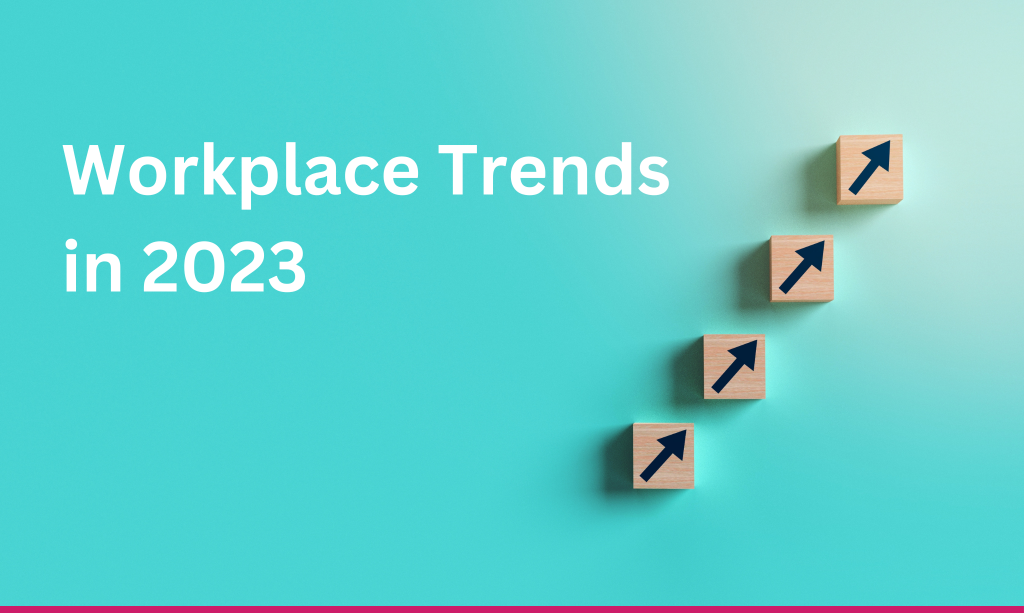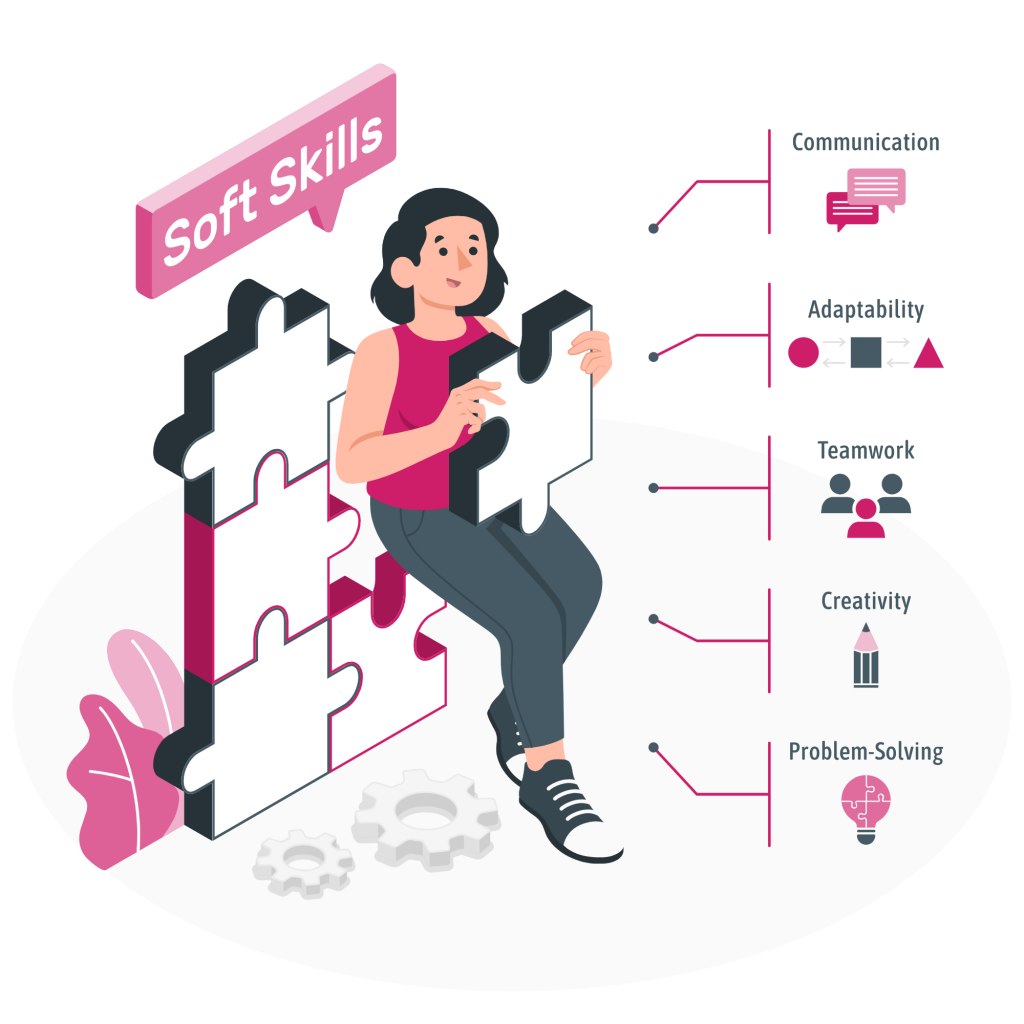Top 7 Workplace Trends to Look Out For in 2023

Workplace trends to look out for in 2023, If there’s one thing we all can resemble, it is that the world of work is continuously evolving, as a result of the COVID-19 pandemic, technologies, globalization, and mobility, and it is crucial to comprehend these changes.
Workplace trends are business changes that are destined to grow continuously for business success like Hybrid or remote working, employee wellness, automation, artificial intelligence (AI), and an ongoing education system.
The purpose behind pointing out the trends is to alert employers and employees to industry shifts and aid companies to improve their work culture, beating workplace complacency, and establishing progressive workplaces.

Biggest Workplace Trends in 2023 shaping the future of the work
Undeniably, a lot is in store when it comes to workplace trends in 2023, some of which include-
1. Prioritization of Employee Well-Being
“Health is wealth” is the paraphrase on which organizations nowadays are increasingly focusing to maintain work-life balance and the mental health of employees.
Retaining the best talent for a longer period is more important than obtaining the best talent. Your employees’ well-being is one way to ensure they stay with you for a longer period.
Employees’ well-being is important for numerous reasons that benefit the organization in the long run-
- Higher Retention rate
- Lower Burnouts
- Improved Employer brand
- Flexible work approach to increase efficiency & productivity
Ways to look out for employees’ well-being-
- Equal treatment to every employee & bringing them together through strong communication, collaborative projects, and social events.
- Concerning employees’ financial health shows them that you respect and care for their individuality.
- Mental and emotional well-being are equally under consideration by offering enhanced mentor schemes, stress management sessions, and counseling.
2. Emphasis on Soft Skills
You’re facing a dilemma as you need to hire only one of the two qualified candidates who have acquired the same knowledge during their interviews.
This circumstance might have happened with many of the hiring managers. One skill that people regard as a key differentiator for finding an appropriate solution is Soft Skills.
While considering “power skills” as equally important, and in some sectors even more crucial than hard skills for success in your career. The traits that come under soft skills & make them valuable includes-
- Complementing your hard skills and Improves productivity & decision-making skills
- Measure your teamwork capabilities and Showcase your desire to work for a longer duration
- Helps you stay organized and resilient to changes
- Develop your leadership skills and Increase your ability to take initiative
Covering a diversified range of soft skills like teamwork, time management, empathy, delegation, leadership, critical thinking, creativity, and problem-solving, are now in high demand.
From negotiating to acquiring a contract, delivering your new ideas at the workplace, networking & building relationships, and so on, we use soft skills to win more business and accelerate our career progression.

3. Hybrid working
It is impossible to discuss workplace trends in 2023 without including remote or hybrid working models.
A hybrid approach, combining in-office and remote working, is set to become the new normal.
Organizations at first reluctant to allow employees to work from home now have validation that virtual work environments are practical and sustainable, owing to globalization and advancement in technology.
Nevertheless, there are a few concerns to focus on in response to the hybrid working model. Working away from the office sometimes makes employees feel less connected to the office space & colleagues and struggle hard to boost & engage in the organization’s culture.
Companies need to consider this circumstance and assure that hybrid working approaches should be implemented. But in a way that validates both company’s & employees’ needs to be met.
In addition to flexibility & versatility offerings, some of the benefits of a hybrid working approach include-
- Better work-life balance
- Increasing productivity & efficiency
- Less commuting
- Reduces operational costs
- Attract & retain talent.
4. Increased Diversity, Equity, and Inclusion (DEI) Efforts
In recent years, diversity, equity, and inclusion (DEI) efforts are becoming essential, as it leads to higher innovation, employee engagement, and growth to achieve a higher level of business performance so that all people in an organization can thrive professionally and personally.
People have increasing demands for companies to hire more women and people of different castes and creeds, reframe the role of coaching, prioritize open communication, and awareness of mental health, and support the LGBTQ+ rights movement. Regardless of enormous progress, further transformations are required.
DEI is a policy that is formed to make people of diversified backgrounds feel welcome and valued and assure they have assistance to perform to the fullest of their capacity at the workplace. So the movement for diversity and inclusion in organizations is a rising trend and every employee deserves a safer and more supportive work environment to work on.
5. Focus on Flexibility in roles and processes
Struggling to manage both work & personal life seems stressful, especially when you are under pressure to prioritize one over the other. But once the organization adopts a flexible approach to work, the employee feels less pressured and focuses on performing their best at the workplace.
It’s a two-way street that both the employers & employees should act upon to reap the greatest benefit of flexibility. Flexibility contributes to working under more adaptable scenarios, is enjoyable, invites open-mindedness to new ideas, and becomes a productive working environment where everyone feels valued and work feels more meaningful.
Flexibility at the workplace is all about the willingness to adapt to change in the work environment. Especially about when and how to get work done.
Remote or hybrid work is not anymore a pandemic-driven essentiality, but as organizations are entering 2023. A lot of them will surely continue to experiment with various approaches in working to ensure flexibility in the workplace which includes-
- Defined working hours
- Control & Stability in work schedule
- Avenues for extended time off for career layoffs or sabbaticals
6. Recruitment based on Skills Over Jobs
To perform any job or work, one must have skill sets to carry out the duty of that particular job. Sounds undeniable, right?
Still, according to the report, “HR predictions for 2022” generated by research analyst. Josh Bersin says that the organization viewed employee training as important but not a necessity. So the traditional or historical format of job positioning didn’t give much attention to it; instead, they looked out for degrees & formal qualifications.
With the trends and automation in technology, companies today are recruiting candidates that can open up opportunities for business advancement and are hiring for skills backed by the experience they hold.
They believe that recognizing people based on their ability should be given utmost importance rather than just the former educational qualification or title they hold.
Training, internships, and apprenticeships upskill applicants to attain relevant expertise. So that will be beneficial both for the employee & organization’s growth opportunities.

7. Increased transparency
Looking for better engagement plans to connect with employees?
Employees and management should converse openly about business performance, objectives, and goals in a two-way interaction.
An open & transparent work environment treats everyone with respect & likewise and makes them feel valued. Transparency in the workplace lets management open up on sharing their expectations, setbacks, feedback, and revenue. It encourages employees to open up about their achievements & mistakes, feedback, and challenges and engage more in decision-making conversations.
This helps in promoting a culture that breeds trust, innovation, dedication, and job satisfaction and in turn leads to a safer & positive environment that drives employee satisfaction & productivity.
Final Thoughts
Employers & organizations are embracing many aspects to embrace agility, offer flexibility, prioritize employee mental health, and engage with the expanding technology landscape.
All these in turn will maximize the benefits of working in terms of employee satisfaction and increased productivity.
Whilst planning to maintain work-life balance has become the outmost priority of the employees. So the future of the workplace is reforming itself to fit more into the employee-centric model.
Recent Posts
- 20 Examples Of Employee Feedback In The Workplace
- How to Obtain Valuable Input from Your Audience for Enhanced Product Development (and Increased Sales)
- 4 E’s of Employee Engagement and How To Implement Them
- How To Choose The Right Customer Experience Management Software For Your Business
- Why Customers Leave: Recognizing the Signs and Strategies for Retention
